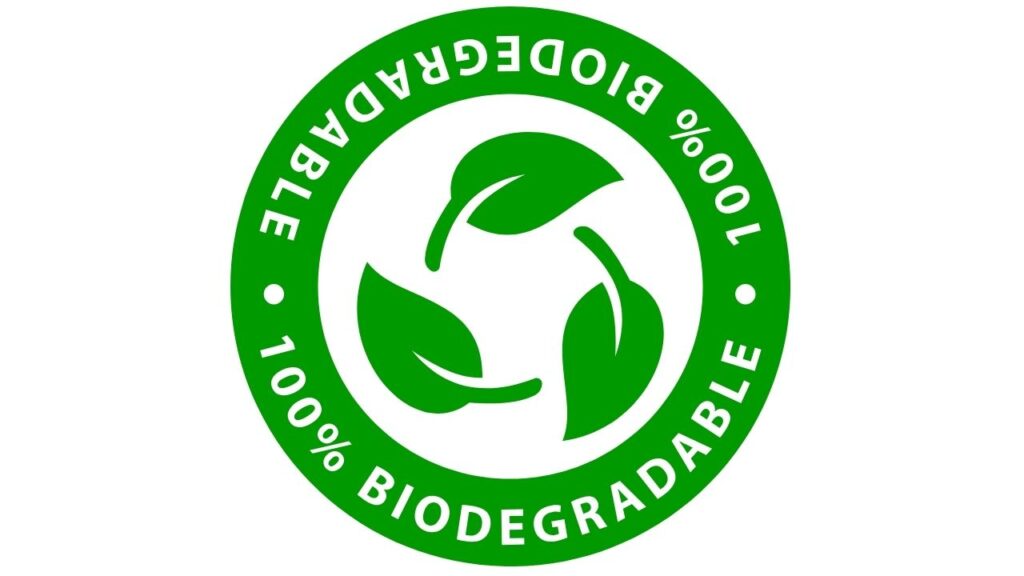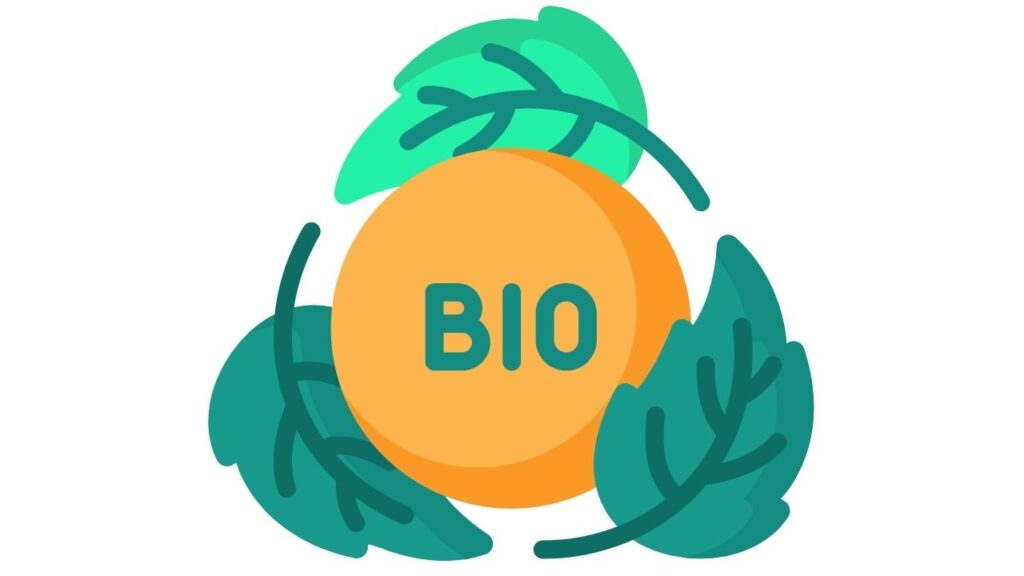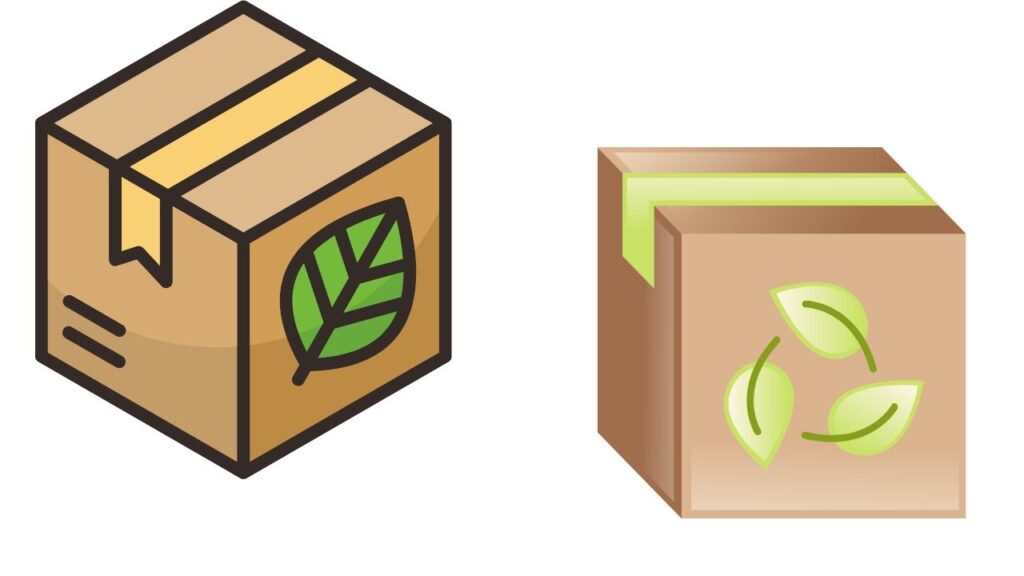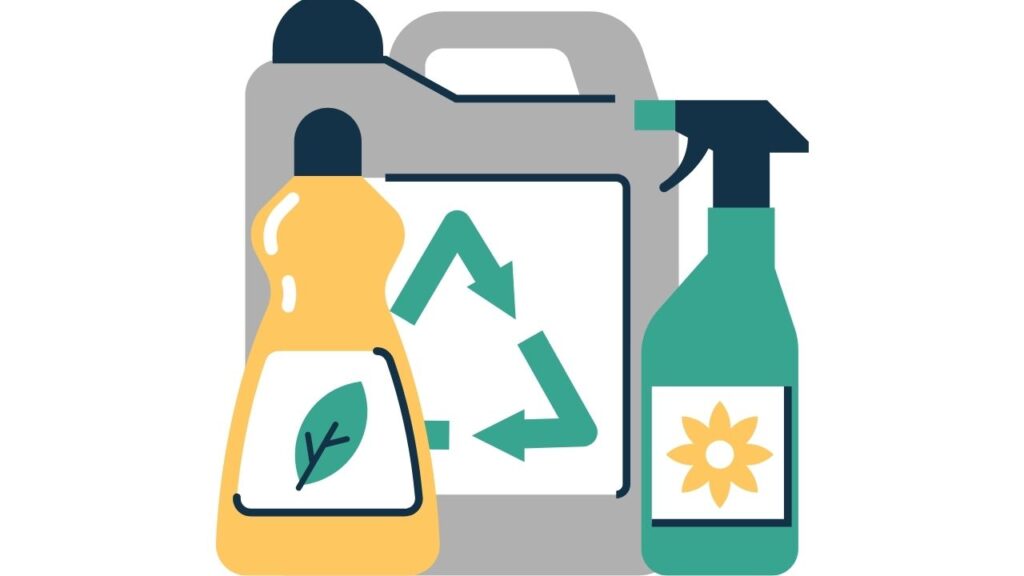Biodegradable Breakdown: What It Is & Why It Matters?
Biodegradable items are essentially things that can be broken down by living organisms such as bacteria and fungi, and then safely returned to the environment without causing any harm. This natural process is known as biodegradation, where these living things break down the materials into simpler components that can be easily absorbed by nature.

Learn about :-
What is biodegradable?
Biodegradable materials are usually derived from natural sources such as plants or animals. These materials have the ability to break down and decompose over time, which is beneficial for the environment. Some common examples of biodegradable materials include:
- Food scraps
- Yard waste
- Wood
- Cotton fabrics
- Paper
In contrast, materials like plastic, metal, and glass that cannot be broken down by natural processes, known as non-biodegradable materials, can persist in the environment for an incredibly long time. It can take hundreds or even thousands of years for these materials to decompose, which poses a significant problem.

As a result, landfills become overwhelmed with these materials, leading to pollution and environmental degradation. Additionally, the presence of non-biodegradable materials in the environment can have detrimental effects on ecosystems and wildlife, further exacerbating the issue.
Composting and its role in biodegradation.
Composting is a regulated process that imitates the natural biodegradation of organic materials by providing an ideal environment for microorganisms to break them down. It’s like a natural recycling mechanism that efficiently deals with food scraps and yard waste. Let me guide you through the fascinating role of composting:

Detail Blog Post On Composting :- https://wecareearth.com/sustainable-living/home-garden/composting-from-kitchen-waste/
Accelerates Decomposition
This process not only helps to reduce the amount of waste that ends up in landfills, but it also produces nutrient-rich compost that can be used to improve soil quality in gardens and farms.
Reduces Landfill Waste
Composting helps to decrease the amount of methane emissions released into the atmosphere by diverting food scraps and yard waste away from landfills. Methane is a powerful greenhouse gas that is produced when organic matter decomposes in landfills. By composting, we can reduce the negative impact of methane on the environment and work towards a more sustainable future.
What are biodegradable products?
Biodegradable products are usually crafted from natural materials that originate from plants or animals. Examples of Biodegradable products
Biodegradable are eco-friendly alternatives that are designed to break down naturally over time, reducing the impact on the environment and promoting sustainability. By choosing biodegradable products, individuals can make a positive contribution towards a greener and cleaner planet.
Biodegradable Packaging ( Environmentally friendly packaging )
Biodegradable packaging materials, including paper, cardboard, and specific types of plastics derived from natural sources like cornstarch or sugarcane, have the ability to break down naturally over time.

This means that they can decompose relatively quickly, which is beneficial for the environment as it helps to minimize the negative effects of packaging waste. By using these materials, we can reduce the amount of waste that ends up in landfills and contribute to a more sustainable future.
Biodegradable utensils ( Environmentally sustainable utensils )
Biodegradable alternatives to regular plastic utensils are disposable utensils made from materials such as bamboo, wheat straw, or compostable plastics.
These eco-friendly utensils naturally break down after use, which helps to reduce the amount of plastic waste that ends up polluting the environment. By using these eco friendly utensils, we can eliminate the need for traditional plastic disposables and make a positive impact on our planet.
Biodegradable cleaning products ( Environmentally-friendly cleaning)

There are numerous cleaning supplies used in homes, like detergents and soaps, are now available in eco friendly forms. These items can easily decompose into safe substances once they are rinsed away, which helps reduce water pollution and lessen the negative impact on the environment.
Detail Blog Post On Eco Friendly Cleaning :- https://wecareearth.com/sustainable-living/guide-to-green-cleaning/
Biodegradable Textiles
Biodegradable textiles are a great choice in the textile industry, especially those made from natural fibers like cotton, hemp, or bamboo. These fabrics have the advantage of being able to decompose naturally at the end of their lifecycle, unlike synthetic fabrics such as polyester. Unlike synthetic fabrics that can take centuries to break down in landfills, Eco friendly textiles offer a more sustainable option for the environment.
By choosing fabrics made from natural fibers, we can contribute to reducing the amount of waste that ends up in landfills and promote a more eco-friendly approach in the textile industry.
Challenges of Biodegradable Products
While it is true that biodegradable products offer hope in tackling environmental problems, they also present their own set of difficulties.
Lack of standardization
The term “biodegradable” is frequently used in marketing without any specific guidelines or rules to determine what actually qualifies as biodegradable.

This lack of clarity can cause a lot of confusion for consumers, as well as provide an opportunity for companies to deceive people by making false claims about their products being environmentally friendly.
Limited Infrastructure
Biodegradable products need specific conditions in order to break down properly. These conditions include having the right composting facilities or the presence of certain microorganisms in the soil.
Unfortunately, in many areas, there is a lack of infrastructure for composting or recycling biodegradable waste. This means that the decomposition process is not as efficient as it could be, and valuable resources end up being wasted.
Slow Decomposition Rate
Certain biodegradable substances have the ability to break down at a slow pace in specific circumstances, which can lead to them lingering in the environment for longer periods of time and posing potential risks to ecosystems. For Example
| Vegetables | 5 days –1 month |
|---|---|
| Orange peels | 6 months |
| Tyres | 2,000 years |
| Wool socks | 1–5 years |
| Plastic-coated paper milk cartons | 5 years |
Moreover, in oxygen-deprived settings such as landfills, biodegradable materials have the potential to emit methane, a powerful greenhouse gas that contributes to climate change.
Further Reference :- Biodegradable Plastics and Marine Litter, Misconceptions, concerns and impacts on marine environments
Advantages of Biodegradable Products
Biodegradable products come with significant advantages, despite the challenges they may encounter.
Reduced Environmental Impact
Biodegradable items decompose on their own, which helps decrease the amount of garbage in landfills and lowers pollution in rivers and ecosystems. This is beneficial because it preserves natural resources and lessens the harmful impacts of regular non-biodegradable substances.
Renewable Resources
Biodegradable items are often created using materials that can be replenished, like plants or leftovers from farming, as opposed to plastics and other materials made from fossil fuels.
This helps decrease reliance on limited resources and promotes environmentally-friendly practices in both agriculture and production.
Consumer Preference
With growing awareness of environmental issues, consumers increasingly prefer products that align with their values of sustainability and eco-friendliness. Eco friendly products offer a tangible way for consumers to make environmentally conscious choices in their daily lives.
Frequently Asked Questions
Are all biodegradable products compostable?
Not every biodegradable product can be composted, as some of them need specific conditions found in industrial composting facilities. On the other hand, certain products may decompose more effectively in a home compost pile. It is important to check for labels that indicate “compostable” and also follow any additional instructions provided.
What about bioplastics and marine environments?
Although certain bioplastics are created to biodegrade in particular settings, others might not decompose as rapidly in marine environments, which could pose a threat to marine animals.
Aren’t reusable products better than biodegradable ones?
Choosing reusable products over disposables is often a better choice for the environment, even if the disposables claim to be biodegradable. It’s important to consider options like reusable bags, water bottles, and containers whenever we can.
By opting for reusable items, we can reduce the amount of waste that ends up in landfills and contribute to a more sustainable future.
How can I be a more conscious consumer of biodegradable products?
Seek out certifications from reputable independent organizations, explore the various disposal methods available in your local area, and always give preference to reusable alternatives whenever they are accessible.
By being well-informed and making conscious decisions, you have the ability to enhance the positive impact of biodegradable products on the environment.
Conclusion
In summary, biodegradable items are essential for promoting sustainability and lessening the negative effects of human actions on the environment. Biodegradable options, ranging from packaging to clothing and cleaning supplies, provide hope for overcoming the issues associated with traditional non-biodegradable materials.
Nevertheless, in order to maximize the benefits of biodegradable products, it is crucial to tackle obstacles like establishing standards, improving infrastructure, and enhancing decomposition rates.
If you still have some queries left, Please feel free to reach us at contact@wecareearth.com . We will be glad to help & guide you in anyway possible. Visit We Care Earth for eco conscious articles on sustainable living, Climate Change, Sustainable Gardening & Green Brands.
Major part of this blog post is made with the support of Google Ai Chat Bot ‘Gemini’

2 Comments